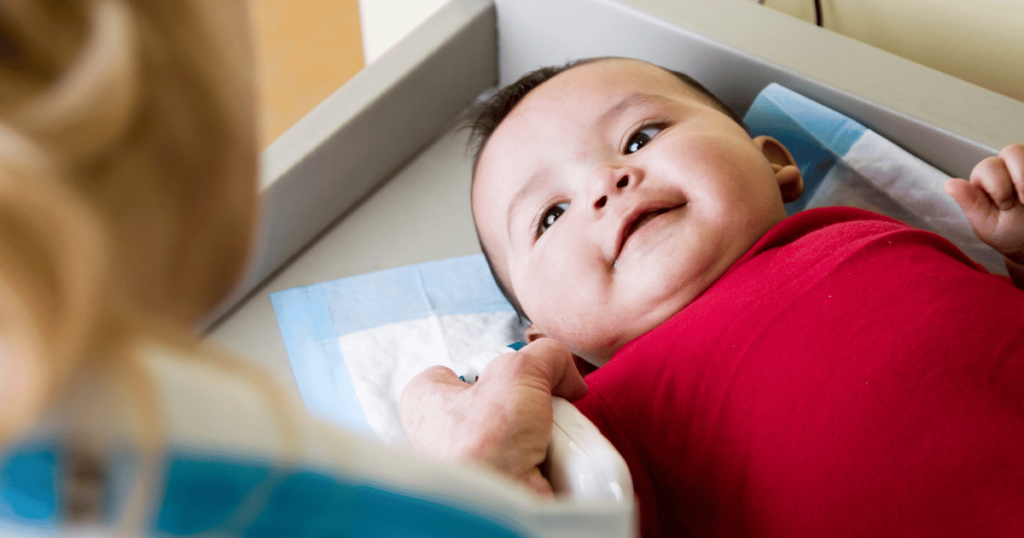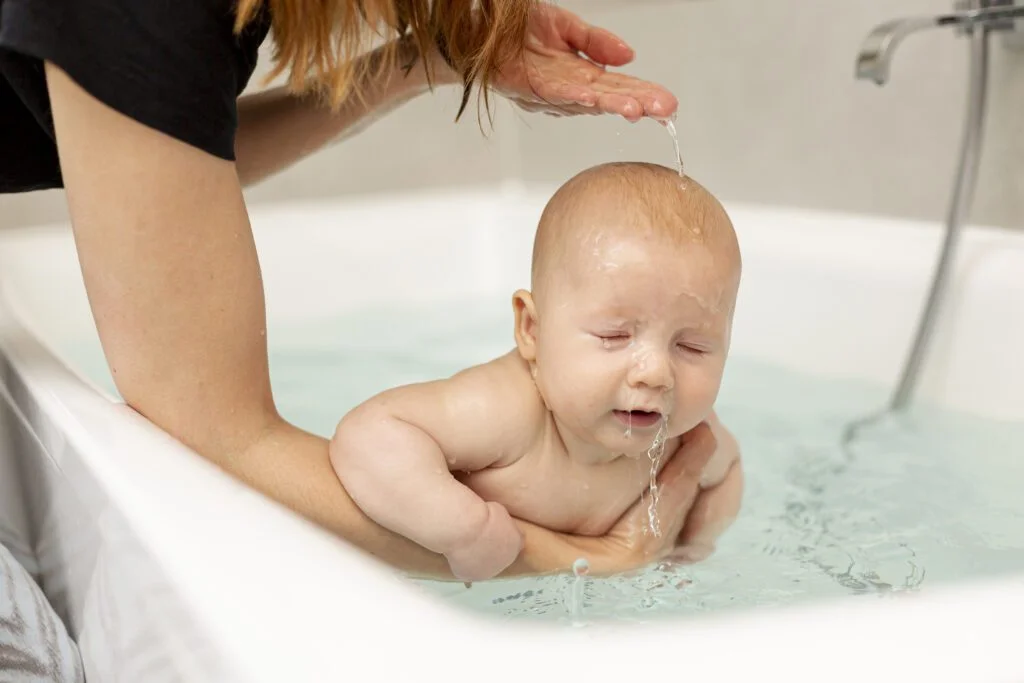Introduction
Well-baby care, also known as routine baby care or preventative baby care, is an essential part of keeping your child healthy during the first few years of life. This care involves regular check-ups with a pediatrician, vaccinations, developmental screenings, and guidance on nutrition, sleep, and growth milestones. It helps parents ensure that their baby is developing properly and allows early detection of any potential health issues.
In this article, we’ll explore what well baby care is, its importance, and what to expect during these visits. By the end, you’ll have a better understanding of how routine baby care promotes long-term health and well-being for your child.
Why is well baby care important?

Well baby care plays a crucial role in ensuring that your baby grows up healthy and strong. Regular check-ups can:
- Track Development: Pediatricians monitor physical and cognitive development to make sure your baby is growing as expected.
- Prevent Illness: Vaccinations protect your baby from potentially dangerous diseases.
- Answer Questions: You can ask any questions about feeding, sleep, behavior, or any concerns you may have.
- Early Detection: Identifying problems early allows for prompt treatment, preventing future complications.
Without these routine visits, it’s easy to miss subtle signs that something might be wrong with your baby’s health.
What happens during a well baby visit?

Well baby visits usually begin shortly after birth and continue at regular intervals during the first few years of your baby’s life. Each visit has a specific purpose, and your pediatrician will check various aspects of your baby’s health, including:
- Growth and Weight Check
During every visit, your baby’s weight, height, and head circumference will be measured to ensure proper growth. The doctor will compare these numbers to national averages to make sure your child is growing at a healthy rate. - Physical Exam
A complete physical exam checks your baby’s general health. This includes the ears, eyes, heart, lungs, abdomen, and reflexes. The doctor also checks your baby’s skin, muscle tone, and posture. - Vaccinations
Immunizations are a vital part of well baby care. They protect your baby from diseases like measles, mumps, rubella, polio, and more. Your pediatrician will inform you about which vaccines are needed and when to schedule them. Click here to view a complete vaccination schedule recommended by the CDC. - Developmental Milestones
Doctors assess your baby’s ability to meet important milestones. These include physical movements like sitting up or crawling, as well as social and cognitive milestones like smiling or recognizing familiar faces. Each milestone provides clues about how your baby’s brain and body are developing. Learn more about developmental milestones for infants. - Nutrition and Feeding Guidance
Proper nutrition is key to a baby’s growth. During each visit, your pediatrician will discuss feeding patterns and may offer advice on breastfeeding, formula, and when to start introducing solid foods. They’ll also guide you on what nutrients your baby needs at each stage. - Sleep Patterns
Many parents struggle with their baby’s sleep routine. Well baby visits are a great opportunity to ask about sleep schedules, safe sleeping practices, and tips for improving nighttime rest. Consistent and safe sleep is important for brain development. - Addressing Concerns
This is your chance to ask any questions or raise concerns about your baby’s health. Whether it’s diaper rash, colic, or general behavior, your pediatrician is there to help.
How often should you schedule well baby visits?

The American Academy of Pediatrics (AAP) recommends scheduling well baby visits at the following intervals:
- Within the first week of life (3 to 5 days old)
- At 1 month
- At 2 months
- At 4 months
- At 6 months
- At 9 months
- At 12 months
- At 15 months
- At 18 months
- At 24 months
After the first two years, most children will see their doctor annually for routine check-ups. These visits give your pediatrician the chance to monitor development and help you with any concerns you may have.
How to choose a pediatrician for well baby care?

Choosing the right pediatrician is essential for your baby’s well-being. Look for a doctor who:
- Demonstrates strong communication skills and actively listens to your concerns.
- Is experienced and well-reviewed by other parents.
- Accepts your insurance and is located near your home for convenience.
- Shares similar parenting philosophies, such as in breastfeeding or vaccination.
Common Questions About Well Baby Care
Is my baby getting enough nutrients from breastfeeding or formula?1
The pediatrician can help ensure your baby is well-nourished and may recommend changes in feeding routines.
How can I get my baby to sleep better at night?
Pediatricians offer valuable advice on improving sleep patterns and dealing with issues like night waking.
What are the best practices for ensuring safe sleep?
Doctors emphasize the importance of placing your baby on their back to sleep and ensuring the crib is safe.
When should I introduce solid foods?
Your pediatrician will guide you on the best time to introduce solids and what types of food are safe.
What steps should I take if my baby is not reaching developmental milestones?
If your baby is lagging, the doctor may suggest further testing or therapy.
What smell will you never forget?
The smell of freshly baked bread, warm and comforting, is something I’ll never forget. It always brings back memories of home and childhood.
Can babies see spirits/ghosts/angels?
There is no scientific evidence to suggest that babies can see spirits, ghosts, or angels. Babies are naturally curious and may respond to stimuli we don’t notice, but these reactions are likely due to their developing senses.
How do you describe a baby’s smell?
A baby’s smell is often described as sweet, pure, and slightly powdery, with hints of milk and freshness. It’s a unique scent that many parents find comforting and deeply memorable.
Can my baby smell me?
Yes, babies can smell their mothers from birth. Their sense of smell is one of the first senses to develop, and they can recognize the scent of their parents, which provides comfort and security.
Do babies have a baby smell?
Yes, babies have a distinctive “baby smell.” It’s a natural, clean scent that often fades as they grow older. This smell is part of the bond that forms between parents and their newborns.
Is there a way to save my baby’s smell?
Some parents try to preserve their baby’s smell by keeping items like blankets or clothes that the baby frequently used. Storing them in an airtight container can help maintain the scent for a longer period.
What is included in well-baby care?
Well-baby care includes regular checkups to monitor growth, developmental milestones, vaccinations, and discussions about nutrition, sleep habits, and general health.
Why are well-baby checkups important?
Well-baby checkups are vital for tracking a baby’s growth, identifying any health concerns early, ensuring timely vaccinations, and offering parents guidance on infant care.
How often should babies have well-baby visits?
Babies typically have well-baby visits at 1, 2, 4, 6, 9, and 12 months, with more frequent checkups during the first year to closely monitor their development.
What should I expect during a well-baby visit?
During a well-baby visit, expect a physical exam, measurement of the baby’s height, weight, and head circumference, vaccinations, and advice on feeding, sleep, and safety.
What questions should I ask at a well-baby checkup?
Parents can ask about developmental milestones, feeding schedules, sleep patterns, vaccination side effects, and tips for babyproofing the home to ensure comprehensive care.
Final Thoughts On Well Baby Care
Well baby care is vital for maintaining your child’s health and identifying any issues early. By scheduling regular check-ups, you ensure that your baby receives the necessary vaccinations, developmental screenings, and proper guidance on nutrition and sleep. Regular visits also provide you with peace of mind as a parent and give you a chance to ask questions.
By staying up to date with well-baby visits, you are setting your child up for a healthy future. Always remember to consult with your pediatrician if you have concerns or need advice on caring for your baby.
Other References
- American Academy of Pediatrics (AAP)
- What to Expect – March of Dimes
- KidsHealth from Nemours
- American Dental Association (ADA)
- WebMD
- What to Expect
- BabyCenter
- Verywell Family
- The Spruce
- Healthy Children
More to Read
- How to bathe a newborn baby in 13 steps: The comprehensive guide
- Getting the temperature just Right: A guide to baby bath water
- Bath Time: How often should you wash your little one
- Baby Bathtubs: The Best 5 Ways to Store Baby Bathtubs in 2024
- 4 Steps to Choose a Collapsible Baby Bathtub in 2024
- The Best 5 Baby Bathtubs for Small Space in 2024
- The Best 5 Inflatable Baby Bathtubs In 2024




Hi, this weekend is fastidious for me, since this moment i am reading this great educational piece of writing here at my house.!